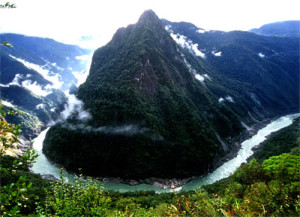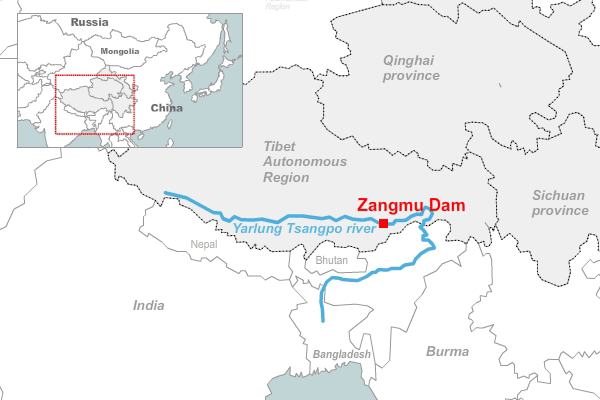Six Tibetans have been located after being detained by Chinese police three years ago. The six were arrested during a protest against forced relocation and construction of a mining project in Lhundrub County, Tibet. The location of the six was confirmed to be Drapchi Prison, Lhasa. The six had received prison sentences ranging from eight to 12 years for their participation in the protest, according to Tibetan rights watch group, Free Tibet.
Two Tibetans received 12 years, three others received 11 years, and one person received 8 years.

The protest took place in April 2011 in Lhundrub County and was staged against a mining project in the area.
In 2009, the Chinese government began damming the Yarlung Tsangpo river, a river that stretches from western to south-central Tibet and is the source of India’s and Bangladesh’s Brahmaputra River.
Tibetans had been forced to relocate in preparation of the mining project, and were promised support. The support did not materialize, however.
When Tibetans requested that the project be discontinued, they were told that anyone who opposed the project would be arrested and charged with political crimes.
Frequently, when Tibetans are arrested by Chinese authorities, their families are not able to find information about their whereabouts.
China currently has plans to build up to 60 dams on the Tibetan Plateau. Twenty so far have been constructed. The dams have affected major riverways in Southeastern Asia, such as the Mekong River.
By Day Blakely Donaldson

UPDATE:
China’s state news China Tibet Online has reported that Western media “distorts facts” about Tibet.
Also, that UK politician Lord Neil Forbed Davidson supported this perspective. Western media are profit-making, but cannot come to Tibet to report on it, Davidson said. China has done a great job in developing Tibet, said Davidson, where people “live happily.”
Davidson: “Many western reports are written by enthusiasts of the Dalai Lama. And they may feel uncomfortable when their presumptions or assumptions are challenged. It is uncomfortable and expensive to have their prejudice challenged.”
(http://eng.tibet.cn/2012sy/xw/201408/t20140812_2012811.html)